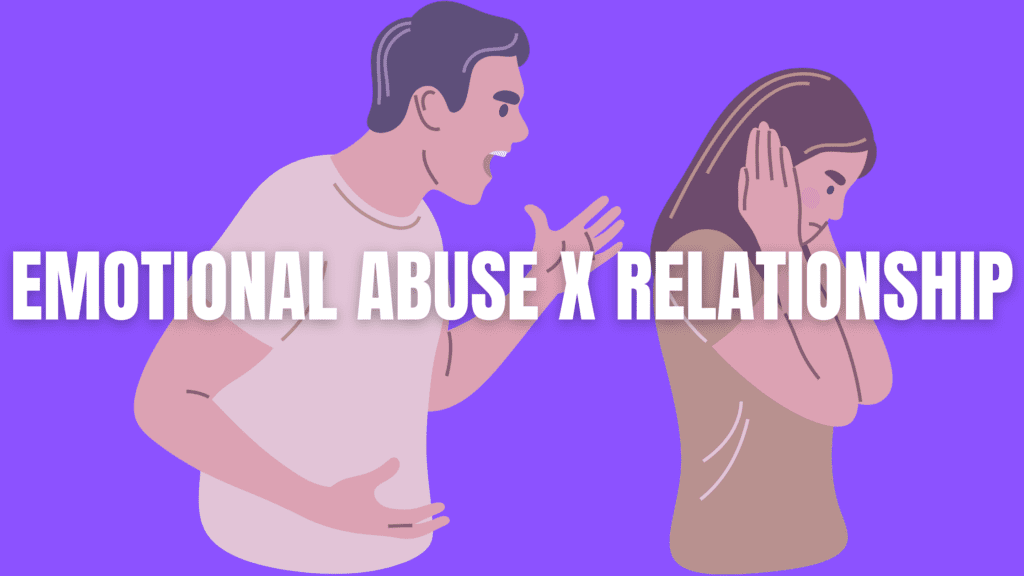Hey there, If you’re here, it means you’re looking for answers. Maybe you’re feeling uneasy in your relationship, or maybe you’re worried about someone close to you. Whatever brought you here, let me start by saying: you’re not alone, and you deserve to feel safe and loved and in no scenario should you or anyone face any form of emotional abuse.
Emotional abuse can be tricky to identify because it doesn’t leave visible scars. Instead, it chips away at your self-esteem, confidence, and happiness over time. It’s like being stuck in a storm that you can’t see but can definitely feel. Let’s talk about what emotional abuse looks like and how you can recognize it in your relationship.
1. Do You Feel Constantly Criticized?
Does your partner make you feel like nothing you do is ever good enough? Criticism can be constructive, but emotional abuse often disguises itself as constant nitpicking. Maybe they make comments about the way you dress, talk, or handle situations. If their words make you feel small or worthless instead of supported, it’s a red flag.
Example:
- “Why can’t you ever get it right?”
- “You’re so sensitive; it’s just a joke.”
Over time, this can erode your confidence, making you doubt yourself even when you’re doing your best.
2. Are They Controlling or Manipulative?
Emotional abusers often exert control in subtle or overt ways. Do they monitor your phone, tell you who you can or can’t spend time with, or guilt-trip you into doing things their way? Manipulation can make you feel trapped, like you’re always walking on eggshells to avoid upsetting them.
Example:
- “If you really loved me, you wouldn’t need anyone else.”
- “You’re lucky I put up with you; no one else would.”
3. Do They Use Your Feelings Against You?
Gaslighting is a common tactic of emotional abuse. It’s when your partner makes you question your own reality or feelings. They might dismiss your emotions as “overreacting” or tell you events didn’t happen the way you remember. This can make you feel confused and powerless.
Example:
- “That never happened; you’re imagining things.”
- “You’re crazy if you think I’d do something like that.”
4. Do They Isolate You From Others?
Emotional abusers often try to cut you off from friends, family, or anyone who might support you. They may make you feel guilty for spending time with others or say things to create doubt about your loved ones.
Example:
- “Your friends don’t really care about you like I do.”
- “Why do you even talk to your family? They’re so toxic.”
When you’re isolated, it’s easier for the abuse to continue unchecked.
5. Do They Make You Feel Guilty or Ashamed?
Emotional abusers are skilled at shifting blame. They’ll make you feel like everything is your fault, even their bad behavior. This can lead to feelings of guilt and shame, making it harder to see the situation for what it is.
Example:
- “I wouldn’t have yelled if you hadn’t upset me.”
- “You’re so dramatic; you make everything worse.”
6. Do You Feel Drained and Unhappy?
At the end of the day, relationships should lift you up, not weigh you down. If your relationship feels more like a burden than a source of joy, that’s something to pay attention to. Emotional abuse can leave you feeling anxious, depressed, and utterly exhausted.
What Can You Do?
Recognizing emotional abuse is the first step toward healing. Here are some steps you can take:
- Trust Your Feelings: If something doesn’t feel right, it probably isn’t. You don’t need anyone else’s permission to trust your instincts.
- Talk to Someone You Trust: Share your feelings with a friend, family member, or therapist. Sometimes, hearing someone else’s perspective can help you see the situation more clearly.
- Set Boundaries: Let your partner know what behaviors are unacceptable. If they truly care about you, they’ll respect your boundaries.
- Seek Professional Help: A counselor or therapist can provide you with tools and support to navigate this challenging time.
- Consider Your Safety: If you ever feel unsafe, don’t hesitate to seek help from local resources or authorities. Your safety is the top priority.
Remember, You Deserve Love and Respect
You deserve a relationship where you feel valued, heard, and cherished. Emotional abuse is not your fault, and you don’t have to stay in a situation that hurts you. Healing takes time, but recognizing the signs of abuse is a powerful first step.
Take care of yourself. You’re stronger than you think, and you’re worthy of a love that feels good and true. If you’re ready, reach out for help today. There are people and resources ready to support you on this journey.
You’ve got this.

